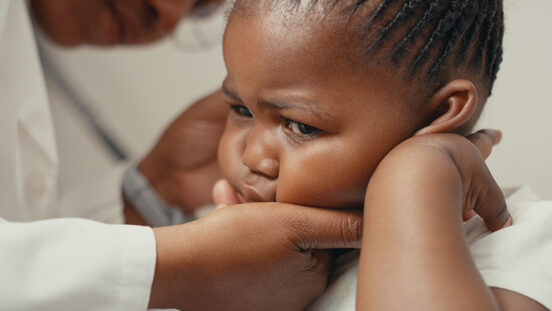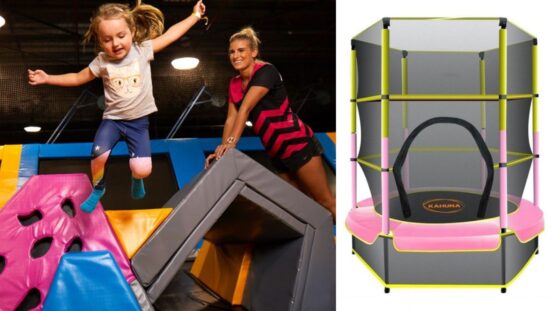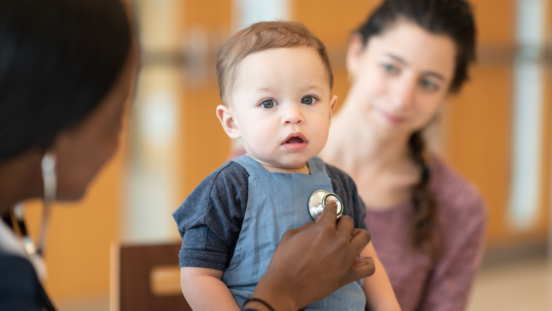Helping your kids deal with disasters

The past five months have seen floods, tsunamis and earthquakes decimate towns and cities across the world. With rolling news coverage and live video streams bringing images of the despair and destruction into our homes, it is easy to forget the impact such things can have on children.
Even if kids are thousands of kilometres away from the affected area, and know nobody involved, they can be deeply disturbed by disasters.
Child psychologist and parenting expert Warren Cann has witnessed the effect disaster coverage can have on children and says parents need to be aware of exactly what their kids are seeing.
"It's worth thinking about what's going on in your home," he says. "Is the TV on permanently? Is it showing scenes of trauma and stress and are the kids paying attention to this?
"This can be very upsetting, particularly for younger children who don't understand that this is the same event being played over and over. Every time they see it they can think it's happening again."
Signs your child is stressed or worried
Younger children may:
- exhibit an unwillingness to sleep in their own bed;
- have nightmares;
- repeatedly ask questions about death and trauma; or
- go backwards in their development (for example, starting to wet the bed again).
Older children may:
- withdraw from school, social or family life;
- appear depressed or aggressive; or
- be unwilling to talk about the disaster, or exhibit an unusual obsession with it.
If you notice signs your child is stressed there are several ways to manage it. For younger children, Cann recommends limiting access to news bulletins, while older children should be encouraged to watch broadcasts with their parents so they can discuss what they see.
"With younger children, primary school age and below, I would be aiming to restrict exposure to traumatic events as much as possible," Cann says.
"With teenagers and older primary school kids, they are going to hear about this elsewhere. Rather than having it floating around in their background, sit down and watch the news together so you can normalise the feelings they're having and also so you can have positive discussions.
"Point out the people who are helping, point out the courageous stories, the heroes."
As a general rule, answer any questions children ask, but don't bombard them with information that might scare them.
"Avoid getting into really gory detail, but speak plainly and provide the information that is being sought," Cann says. "You can't go too far wrong if you are responding to what the child is asking."
Brooke Jones has two young boys, aged five and four. The Queensland floods were the first natural disaster her kids were old enough to be conscious of, and she was extremely worried about how they would cope.
To ensure they didn't get too distressed, she decided to strongly limit their consumption of TV news, but allowed them to look at photos in the newspapers so they would have an awareness of what was going on.
"They can't read yet so the newspapers let them see pictures of what is happening so they are aware of it, but without the horror stories about death and destruction," Jones says.
Jones also tried to put the disaster into terms her sons could understand. She also offered to help them donate some of their pocket money to the disaster relief fund so they could feel like they were helping.
"We talked about how some kids had lost all their Christmas presents," she said. "I asked them to imagine what it would be like if our house was flooded, and what they would save and how they would feel.
"After that I told them we would donate some money to help those kids buy new toys. They were so happy to help they would have emptied their whole moneyboxes if they could."
Cann thinks this is an excellent way to help children understand a disaster.
"Donating money or doing something else tangible is a real way children can channel their concern into something constructive," he says. "At the end of the day, everyone just wants to feel like they're helping and children are no exception."
Warren Cann's tips on how to help your child deal with a disaster:
- Minimise exposure to traumatic events on TV.
- Answer questions simply and factually but without gory details.
- Let older children talk about how they feel so you can correct any misunderstandings or misperceptions that might be causing anxiety.
- Reassure your children that they are safe and protected.
- Tell them it is normal to feel anxious or sad.
- Help them focus on positive things that are being done to help.
- Maintain daily routines at home as much as possible.
- Take them to give blood (if they are older than 16).
- Attend a memorial service for the victims.
- Help them write a letter of sympathy and support.
- Encourage them to donate toys, food or clothing.
- Raise money for disaster relief or victim support funds.
- Volunteer your time and theirs to help the relief effort.
- If you see changes in your child's behaviour or they seem very worried, don't hesitate to seek professional support.
Warren Cann manages the Raising Children Network, a government-sponsored website that provides parents with advice on raising kids. He is also the CEO of the Parenting Research Centre.
Your say: How are you helping your children deal with the recent natural disasters?
Video: How to explain tragedies to children




